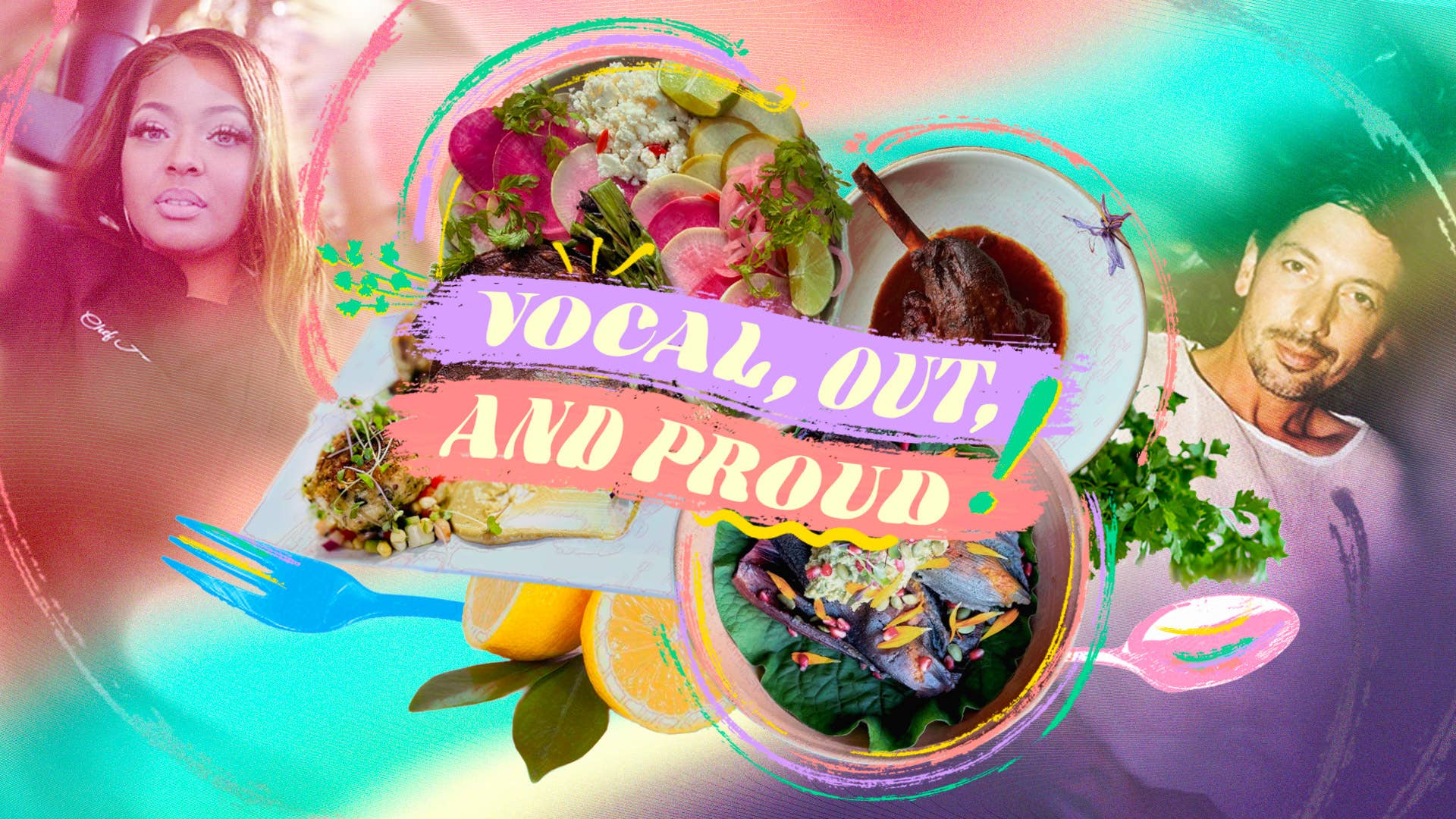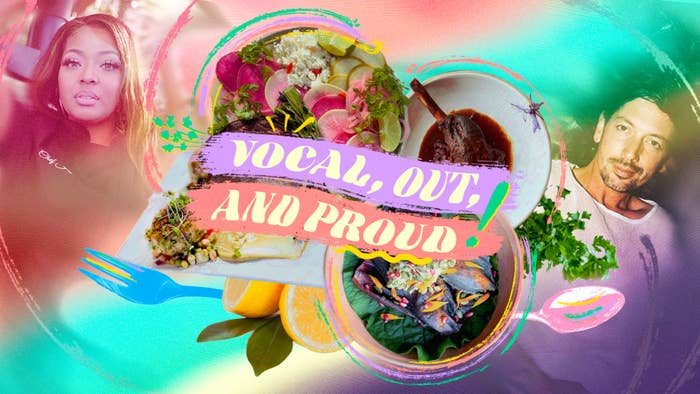
Diversity is necessary in any field, but even more so within the restaurant industry where most of the leadership is comprised of cisgender heterosexual white men, and little room is made for other identities and cuisines. Queer chefs, food and culture have historically been excluded from the spotlight.
Queer food culture isn’t new. Activism, potlucks, and mutual aid are staples in the movement to create more visibility for queer chefs in the food industry. For New Mexican chef Eric See, and Charlotte-based personal chef Adoja Courtney better known as Chef Joya, queer spaces in the culinary world are a result of culture creativity and intentional allyship.
For See, the birth of Ursula, a New Mexican-inspired cafe and bakery in Crown Heights, Brooklyn, came after the late 2020 closing of his Bushwick pastry shop. Extended time with his family in Albuquerque during the pandemic cemented the decision to open the cafe.
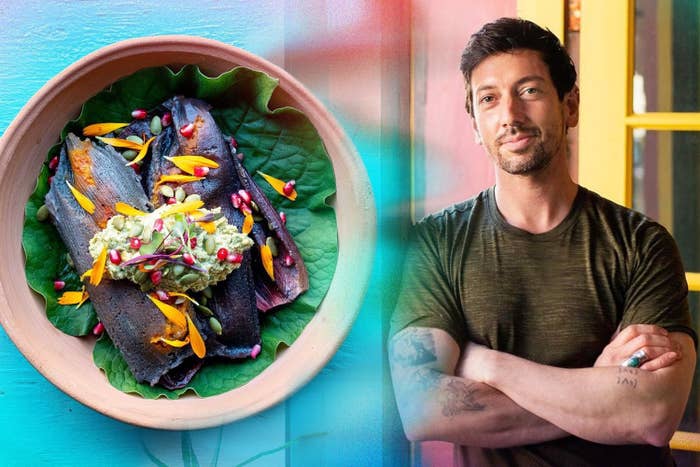
As the self-proclaimed “Queen of Transitioning Meat Eaters,’’ Chef Joya’s specialty is veganizing traditional meat-centric recipes from Southern, Caribbean, and African cultures. She feels that the lack of options “keeps a lot of our people from coming over to the vegan side.” Between three seasoning blends and four cookbooks, as well as being Fantasia’s personal chef, it’s clear that the award-winning chef doesn’t play when it comes to sharing her resources.
Both See and Joya are giants within the queer culinary space, but they also acknowledge they wouldn’t have achieved their success had it not been for intentional allyship. To highlight the importance of togetherness, Complex teamed up with Ally and spoke with Chef Joya and Eric See about their individual culinary journeys.
Ally has long seen the value in contributing and reinvesting into minority owned business and business owners who belong to the LGBTQ+ community. Ally has used its platform to bring awareness to diversity and inclusion, visibility for minority audiences, and equal access to business opportunities for small business owners. And because of Ally’s continuous commitment to marginalized communities, supporting and spotlighting queer culinary artists such as Eric See and Chef Joya prove Ally puts their money where their mouth is.
For Chef Joya, her mentor, fellow chef Lisa Brooks, helped her to realize her talent and the unique lane she was forging. While Eric See underscores by being vocal about his queerness, as well as providing mentorship and transparency to other chefs within the space, he has also helped to bolster the community. Read below to learn what are some of Chef Joya and Eric See secret ingredients to success in and outside of the kitchen.
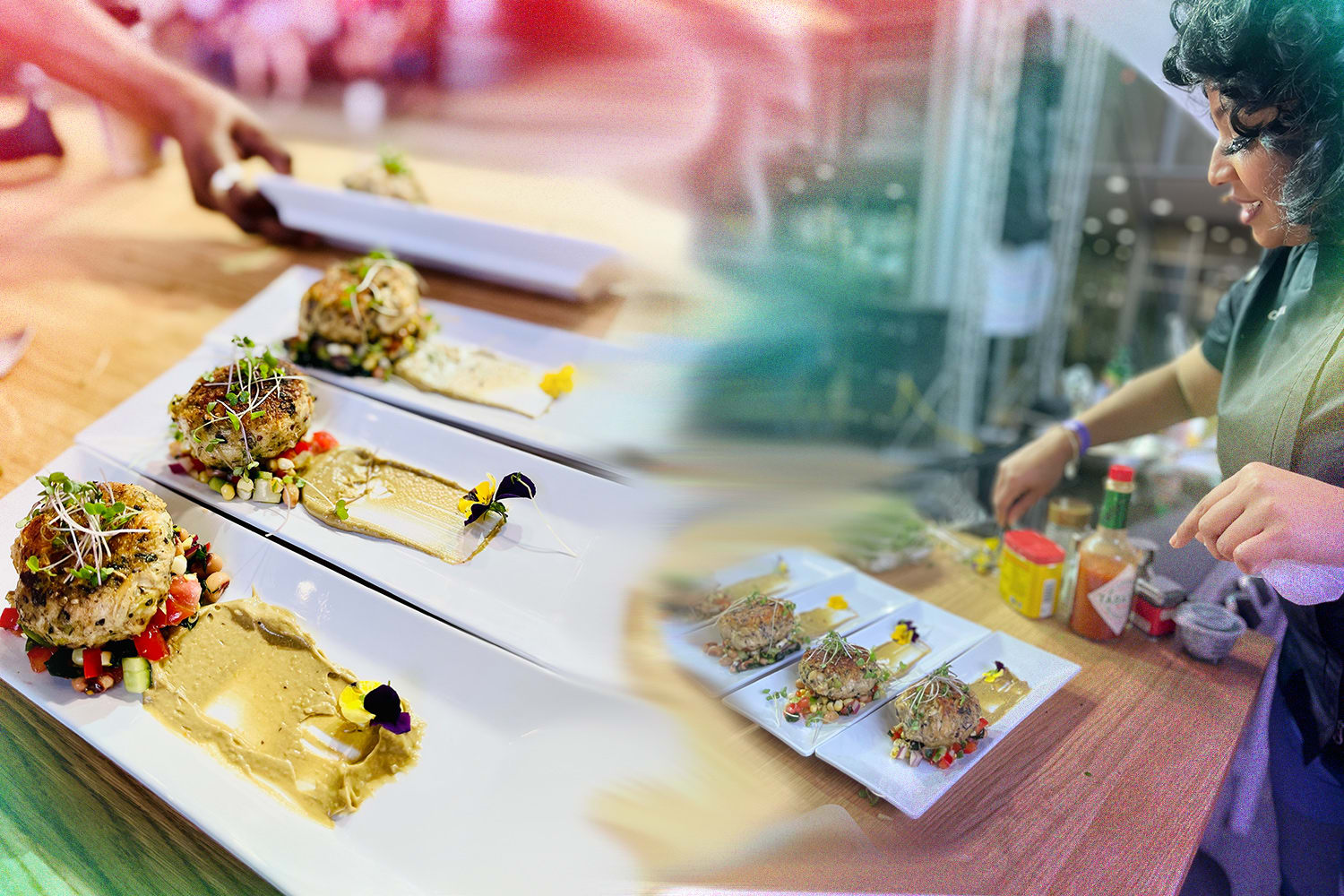
Complex: What was your journey to becoming a chef like?
Eric See: My journey’s been lifelong. I’ve been in food industry since I was a kid. I’ve been in restaurants since I was 14. It’s my comfort zone. I love the communal aspect of it. I love this transference of history and culture without having to speak but still getting a glimpse into people’s lives by seeing what they’re putting on a plate.
I never actually thought it would be a career for me. I waited tables and I worked in hotels for a little while, and thought I was going to go into hotel management, but I ended up in the kitchen by way of a failing relationship. I went to pastry school thinking I was gonna save our relationship, but it didn’t work out. So, I ended up in New York and I’ve been super happy doing what I do now.
Chef Joya: I didn’t realize this was going to be the path I would be on. I’ve always been a phenomenal cook. I always love being in the kitchen, cooking for friends and family. Everyone started to suggest it. After I posted pictures, people were like, ‘Hey, why don’t you teach classes?’ And I’m like, ‘Yo, I just did this at home.’ After a while, it became ‘Okay, let me actually start looking into culinary school.’
I met a personal chef, Chef Lisa Brooks, and that was my first time [hearing about that type of chef]. I’ve heard of a private chef or restaurant chef, but I never heard of a personal chef. And that’s who became my mentor a year or so down the line. That’s when I discovered private dinner parties or different dining events.
Then it was like, ‘Dang, this is everything that I’m doing now,” and she was the one who encouraged me to become a vegan chef. I literally cried that day, ‘cause I was like, ‘I don’t want to be a vegan chef! I don’t want to get put in a box!’ She was like ‘This is what you need to be doing,’ and so, it took me about a couple months to accept it and when I did, I realized she was not lying.
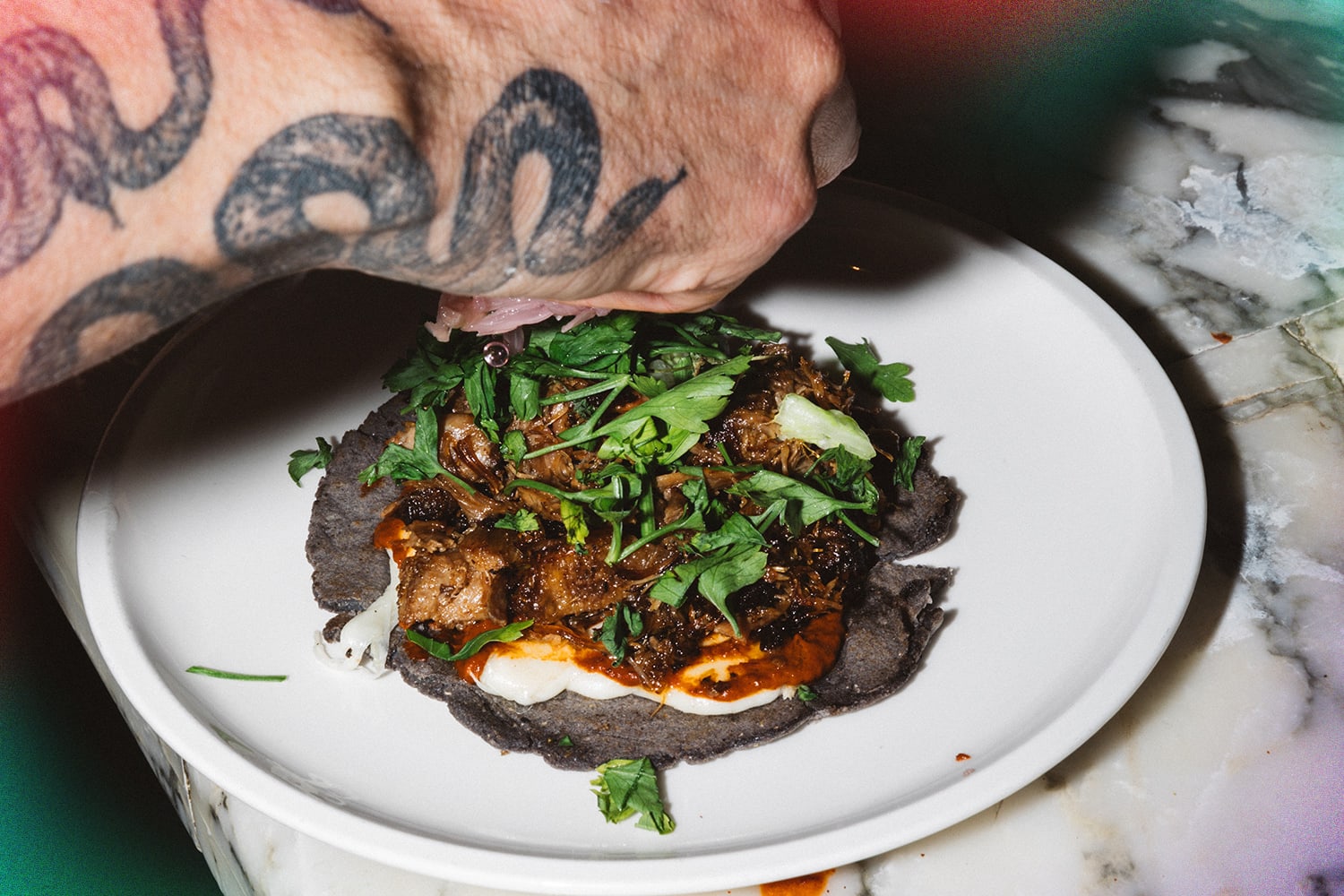
Complex: How do you infuse your cultural heritage into veganizing your meals?
CJ: I’ve always studied different cultural foods. I would be that person in the kitchen when I went to somebody’s house. I’ll be in the kitchen with somebody’s Jamaican grandmother. While everybody’s partying, I’m watching them cook because I want to learn everything.
I used to hear a lot of people say, ‘Oh, being vegan, I can’t have this. I can’t have that. I’m gonna miss this,’ and I was like, ‘Okay, no, no, no. This is an excuse. Let me show you all how to do this, keep your cultural foods and traditions, and have it taste, look, and smell good so you can give this to yo’ grandma and she ain’t gonna be mad at you.
Complex: What inspires your style of cooking and use of ingredients, especially with the influence of your New Mexican background?
ES: I’m originally from New Mexico. My mom’s side of the family has been in the state for 400+ years, so there’s a lot of history that my family has there. For New Mexicans, we’re super proud and protective of our food and our culture. Our star is the New Mexican chile. It’s the centerpiece of most New Mexican dishes.
There are a lot of signature dishes that [our team at Ursula] serves that I tried to recreate from family recipes and give ‘em a little bit of the New York necessity. I spend a lot of time trying to find a good balance between cultural and agricultural sustainability. So, I use a lot of ingredients from the Hudson Valley, but the beans and the chile must come from New Mexico. So, I ship those out from New Mexico every week. The beans and the blue corn that I use come from Navajo grown farms, because that’s the real cultural genesis of the cuisine, so I want to pay respect to where the cuisine’s coming from and that’s part of that sustainability side of it for me, too.
Complex: Throughout your personal chef endeavors, are there any unique challenges you’ve faced as a queer chef?
CJ: I’ve always been out about who I am, and [if] people didn’t agree with it, the biggest thing they would do was not support [my work] or say, ‘I’m not following you anymore.’
When I started, it was tough breaking in because there were a lot of people who did not want to share their resources or tell me what steps were needed to become a chef. It was like, ‘Oh, go to culinary school,’ and I’m not classically trained. I always tell people I went to the school of Grandma. I learned how to cook with my grandmother or from other grandmothers and I’m great at what I do. Being a Black woman was a tougher challenge than being queer because in the industry — especially when I was coming out — all you see is a lot of white male chefs. I didn’t get the opportunity [as a chef] until my mentor, Lisa Brooks, who is also a Black woman chef [helped me.] She’s leading the personal chef game here in North Carolina.
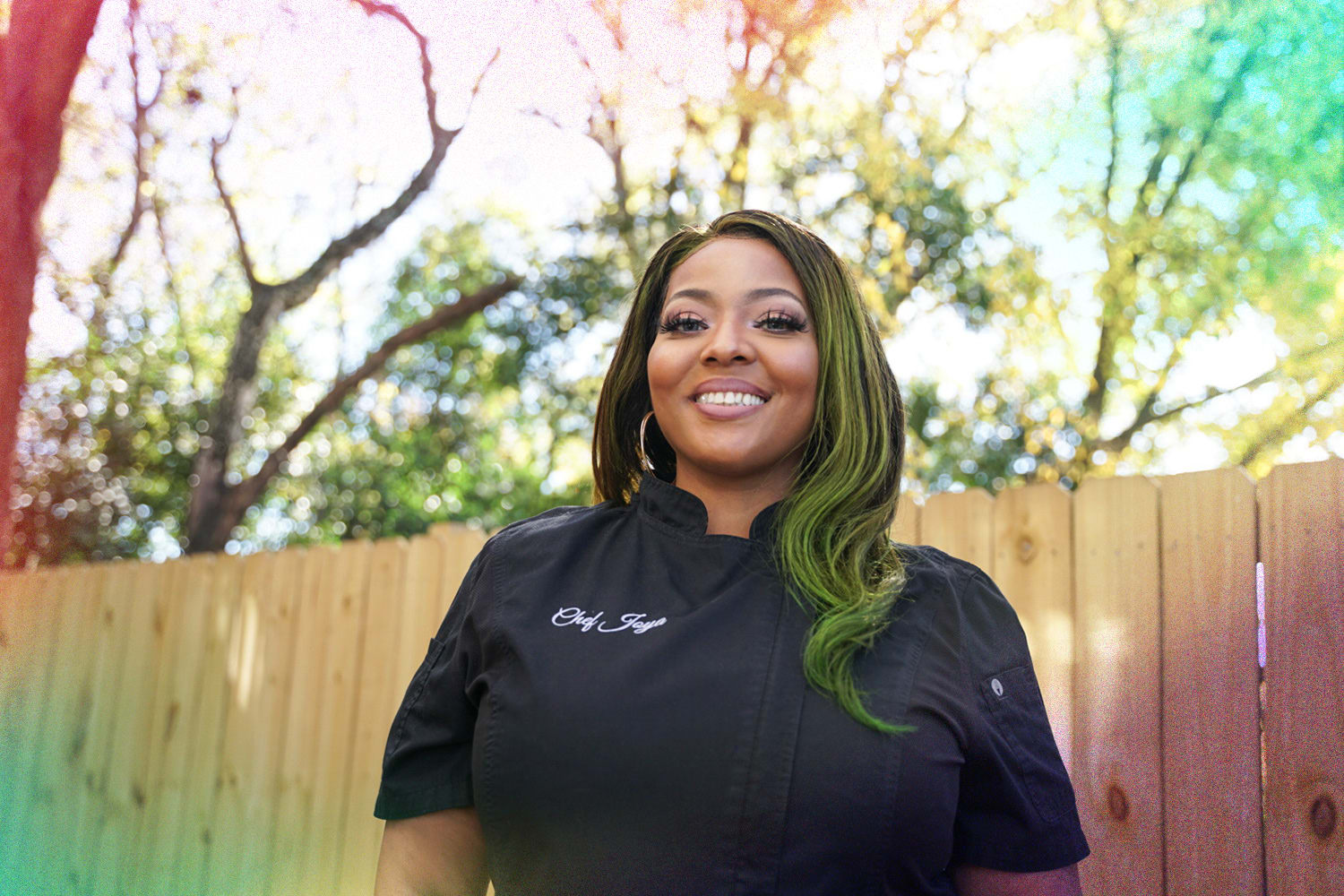
Complex: As a restaurant owner, how have you maneuvered visibility in the restaurant space for queer chefs?
ES: A few ways: by being vocal, out, and proud of myself, and putting that at the forefront of my business and conversation. Through our hiring practices, 95% of my staff is queer-identifying, queer, or trans-identifying; also, in the way that I reinvest my resources, energy and privilege back into the community and New York. I do a lot of advocacy work for the Ali Forney Center in New York, which is the nation’s largest transitional housing system for LGBTQ+ and trans homeless youth. I do a lot of work with immigration equality and other organizations here in the city and state, but we also started by hosting a pop-up series to host queer chefs for pop-ups.
Complex: Since you both have mentioned the importance of community building, how can chefs outside of the queer community be more of an ally to up-and-coming queer chefs?
ES: If you want to be an ally within or outside of the community, I think it goes both ways. It’s about breaking out of the scarcity-competitive mindset, like, ‘Well, if I share this information with you, it’s gonna give you an upper hand, or it’s gonna give you access that I won’t have, or it’s gonna limit me.’ That’s such a problematic way of thinking. I’ve been thankful that the Brooklyn queer food community has been different than I experienced in the past.
We share resources. We share names. We share contacts. We share information with each other. If somebody’s reaching out to us about a gig, especially during pride month, we get together and chat, and we’re like, ‘They offered me this much. They offered me that much,’ so that we all know if they’re not trying to take advantage.
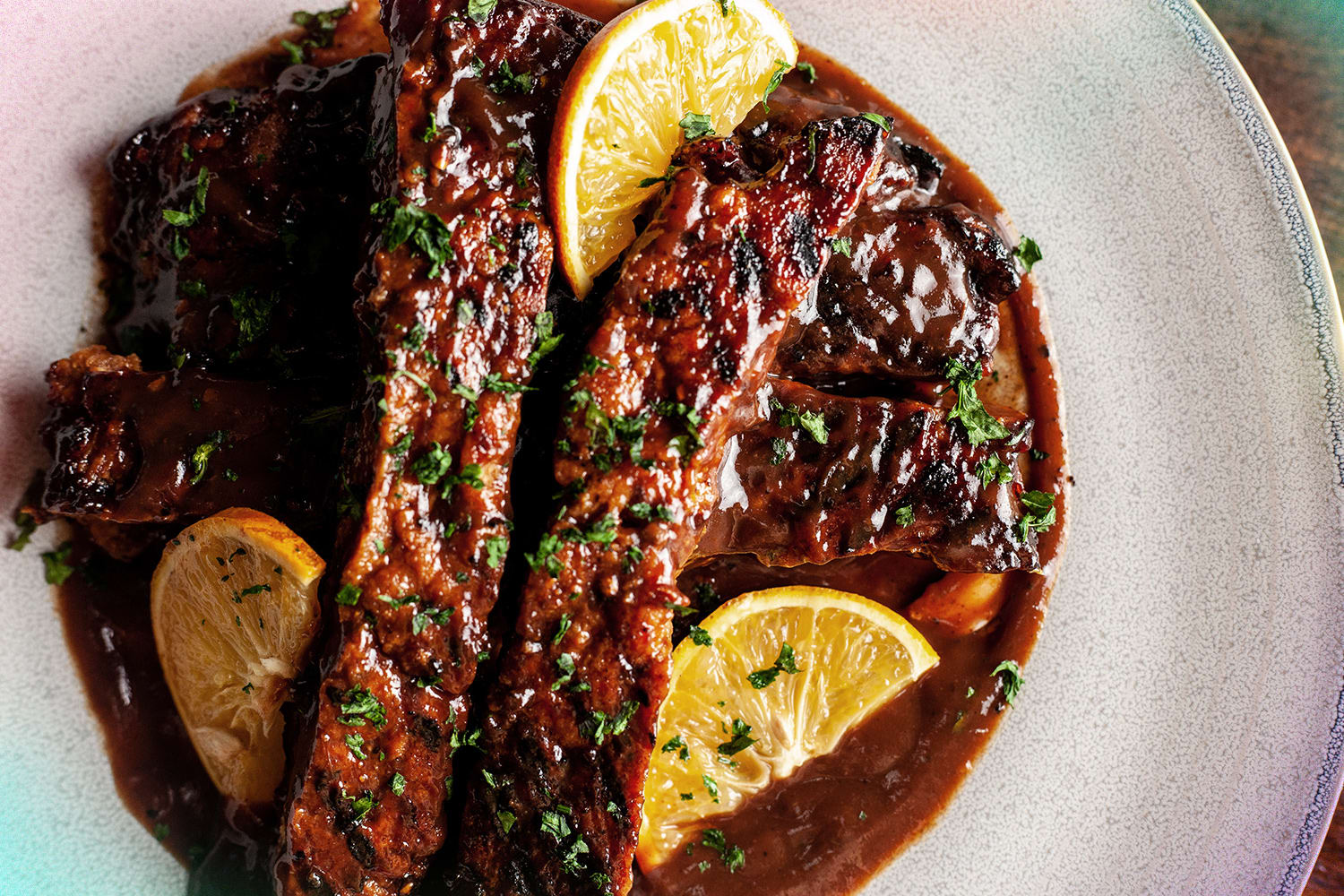
Complex: Is there a big financial lesson that you’ve learned as you’ve navigated your career that you could share with up-and-coming queer chefs?
CJ: Learn your food costs and how to calculate your profit.
ES: Ask questions. This goes back to this idea of sharing resources. I could’ve saved myself so much money if I asked more questions. Even through partnerships with events, make sure that [you’re] being protected. I was afraid to ask too many questions and make myself look incompetent or inexperienced. I think that we center our pride and our ego too much around our insecurity to look vulnerable through asking questions, but I think that that’s the best way to save yourself.
To learn more about how Ally has backed LGBTQ+ communities and how you can too, visit their diversity and inclusion initiative.

